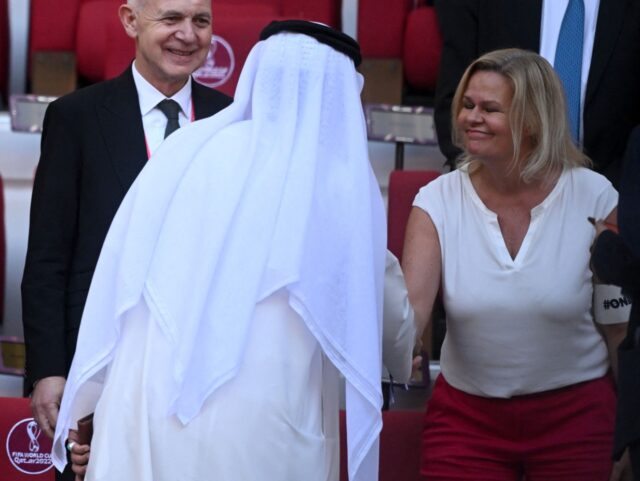Despite persistent controversy over the country’s attitude towards LGBT issues during the ongoing World Cup, Germany has now agreed to buy liquified natural gas from the Islamic nation of Qatar.
An agreement for Qatari liquified natural gas [LNG] to be supplied directly to Germany over the coming years has been signed by Qatar’s Energy Minister Saad Sharida al-Kaabi, reports on Tuesday have claimed.
The deal was reportedly agreed despite the German government repeatedly criticising Qatar over the last number of days over its attitude towards LGBT people, with one minister wearing a banned rainbow armband in protest while attending a World Cup game held by the majority Muslim nation.
However, Germany’s concerns as to the welfare of gay people in the state — as well as migrant workers, who are said to be systematically mistreated in Qatar — are apparently not enough to stop the leftist government from doing business with the Arab nation, with both nations signing off on a deal that will see up to two millions tons of LNG delivered to the European nation annually.
According to a report by Der Spiegel, the contract has been given to Qatari state-owned energy company Qatar Energy, with American hydrocarbon firm Conoco Phillips set to be the party that ships the fossil fuel from the middle-east to Germany.
Speaking at the signing of the contract in Doha, Minister al-Kaabi remarked that there may be more deals done in regard to energy exports to the EU member state.
“We have good relationships with German companies and the German government,” the Qatari official reportedly said.
However, while al-Kaabi appears to be painting a very rosy picture of Qatari-German relations, recent events surrounding the Arab nation’s soccer World Cup seem to indicate that relations are anything but positive.
For example, Germany has repeatedly denounced Qatar over its approach towards LGBT issues, with one leftist minister from the country even going so far as to wear a banned rainbow armband to a World Cup match Germany took part in.
What’s more, the German government’s decision to seemingly abandon its principles on the issue does not even seem to be in service of immediately dealing with its gas crisis, with the deal only set to commence in 2026, with the agreed gas supply likely only to amount to a maximum of three per cent of Germany’s yearly consumption.
Meanwhile, like a whole host of other EU nations, Germany seems adamant that it will leave its own domestic supply of natural gas in the ground, despite the country in theory having enough of a domestic fuel supply to keep the country running for around a quarter of a century.
While one party within the coalition, the faux-libertarian Free Democratic Party, has backed unbanning fracking in order to access this resource, its leftist coalition partners in the Social Democratic Party and Green party have blocked the move, saying that they prefer to keep chasing their green agenda while sourcing fossil fuels from abroad.

COMMENTS
Please let us know if you're having issues with commenting.